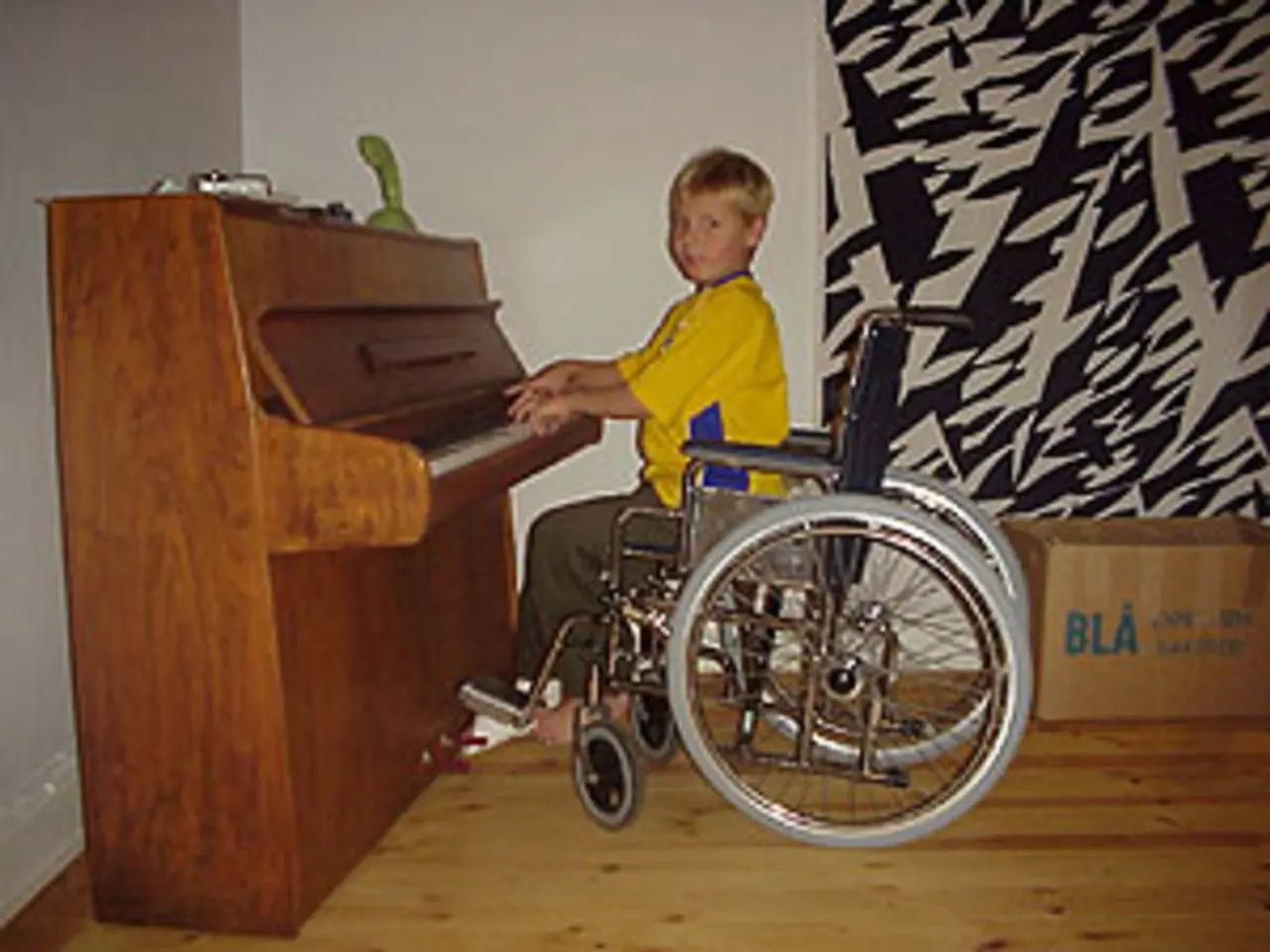Proposed Extension of Duration for Childcare Financial Aid
In Kazakhstan, parents of children with developmental disabilities often find themselves in a challenging situation, as their duties of providing round-the-clock care and support prevent them from working and contributing to pension funds. This is a global issue, with many children with special health care needs requiring ongoing support even as they reach adulthood.
Currently, parents in Kazakhstan receive a care allowance equivalent to 1.4 times the minimum living wage, approximately 50,000 tenge, until their child turns 18. However, this allowance does not include pension contributions, leaving many caregivers without a means of financial security in their later years.
Recently, Deputy Dinaara Zakieva has proposed a review of the mechanism for assigning disability to children with mental disorders and a potential solution to this issue. Her proposals suggest that caregivers of children requiring special care be registered as individual caregivers or receive mandatory social medical insurance (MSMI) after their child turns 18. Furthermore, she has proposed that the allowance paid to these caregivers be equated to wages and include pension contributions.
This change would provide a much-needed safety net for these caregivers, allowing them to continue their vital work while also ensuring their financial security in the future. It is important to note that, at present, there is no option for these parents to be registered as individual caregivers or receive MSMI after their child turns 18.
The proposed changes would also address the issue of lost work history and pension contributions for these caregivers. By providing a wage-equivalent allowance and including pension contributions, caregivers would be able to build a retirement fund, ensuring a more secure future for themselves.
This issue is particularly relevant in Kazakhstan, where nearly 19,000 children with developmental disabilities live, with one in four being a child with autism. The proposed changes by Deputy Zakieva could significantly improve the lives of these families, allowing them to continue providing the necessary care and support for their loved ones while also securing their own financial futures.
Globally, policy priorities include better healthcare access, peer support, and family-based care for children with developmental disabilities. There are strong recommendations to nurture children in supportive family settings and improve early development outcomes through education and responsive caregiving. However, more specific information about current policies and proposals in Kazakhstan is needed to fully understand the impact of Deputy Zakieva’s proposals.
In conclusion, the proposed changes by Deputy Dinaara Zakieva could provide much-needed support for caregivers of adults with developmental disabilities in Kazakhstan, addressing the issue of lost work history and pension contributions, and ensuring a more secure financial future for these dedicated individuals.
- Science and health-and-wellness intersect when discussing support for parents of children with developmental disabilities.
- Fitness-and-exercise, nutrition, and mental-health are critical components of holistic care for individuals with developmental disabilities.
- Therapies-and-treatments are crucial in addressing the unique health needs of adults with developmental disabilities.
- Policy priorities for improving the lives of families with children with developmental disabilities include expansion of family-based care, enhancing early education, and promoting responsive caregiving, as advocated globally.





